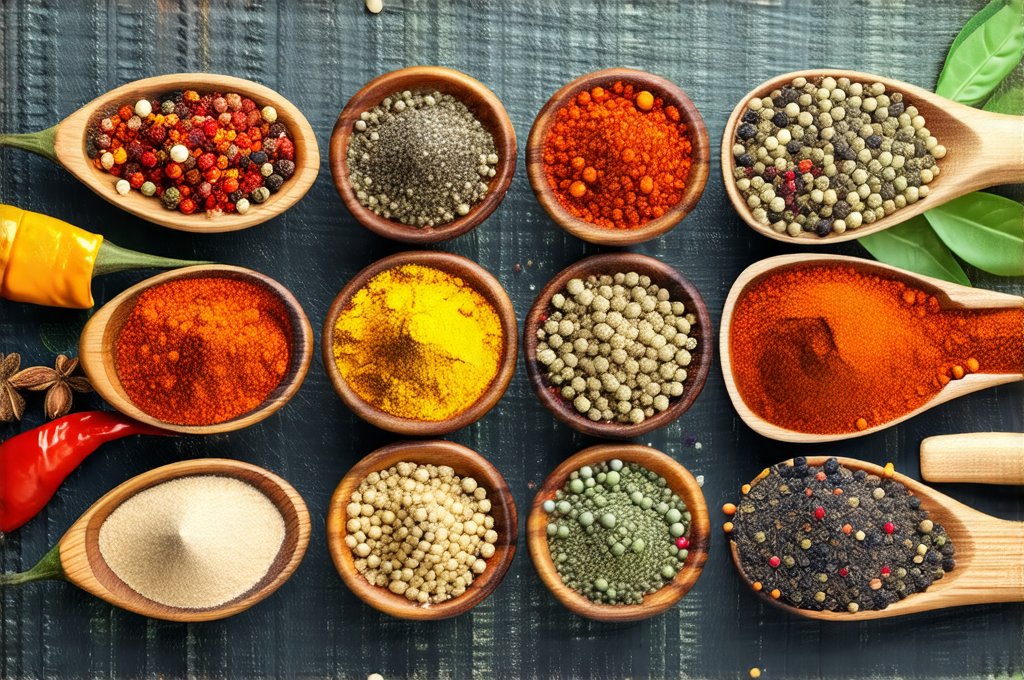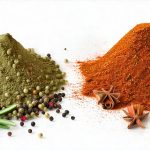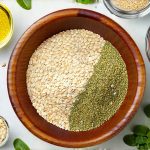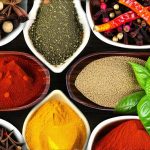Digestion, often taken for granted when functioning smoothly, is a remarkably complex process involving mechanical breakdown, chemical digestion, absorption, and elimination. When this intricate system falters, it can lead to discomforting symptoms like bloating, gas, heartburn, constipation, or diarrhea – significantly impacting quality of life. While dietary choices and lifestyle factors are paramount in maintaining digestive health, there’s growing interest in the role that seemingly small additions to our meals – specifically spices – might play in optimizing this essential bodily function. For centuries, traditional medicine systems like Ayurveda and Traditional Chinese Medicine have utilized spices not just for flavor but also for their therapeutic properties, including aiding digestion. Modern science is beginning to investigate these long-held beliefs, uncovering some compelling evidence that supports the potential digestive benefits of certain spices.
This isn’t about a quick fix or magical cure; rather, it’s exploring how incorporating specific spices into your diet can potentially support and enhance natural digestive processes. It’s important to remember that individual responses vary greatly, and what works for one person may not work for another. This article will delve into the science behind some commonly used spices and their potential impact on digestion, offering a nuanced understanding of how these flavorful additions could contribute to gut health and overall well-being. We’ll look beyond simple anecdotal evidence and examine the research that is beginning to illuminate this fascinating intersection between culinary tradition and scientific inquiry, while always emphasizing the importance of consulting with healthcare professionals for personalized advice. Perhaps incorporating slower mornings could also support a healthier digestive system.
The Science Behind Spices and Digestion
The digestive system relies heavily on enzymes – specialized proteins that break down food into absorbable nutrients. Many spices contain compounds that can either directly stimulate enzyme production or support the overall environment needed for optimal enzymatic activity. For example, some spices have carminative properties, meaning they help reduce gas and bloating by altering gut motility and reducing pressure within the digestive tract. Others possess anti-inflammatory qualities which could potentially soothe irritation in the gut lining – a factor often implicated in many common digestive issues. Furthermore, certain spice components can stimulate bile production, essential for fat digestion, or enhance peristalsis, the wave-like muscle contractions that move food through the digestive system.
The impact of spices isn’t limited to their direct chemical composition. The microbiome, the vast community of bacteria residing in our gut, plays a crucial role in digestion and overall health. Emerging research suggests certain spice compounds can positively influence the microbiome composition, promoting the growth of beneficial bacteria while suppressing harmful ones. This modulation of the gut flora can lead to improved nutrient absorption, enhanced immune function, and reduced inflammation – all contributing to better digestive health. It’s also worth noting that spices often contain antioxidants, protecting the delicate tissues of the digestive tract from oxidative stress caused by free radicals. If you’re focusing on improving your gut health, consider gut focused eating.
The method of consumption is important too. Consuming spices with meals appears to be more effective than taking them as supplements or isolated compounds. This is likely due to their synergistic interaction with other food components and the natural digestive processes occurring during a meal. The act of chewing itself stimulates saliva production, containing enzymes that start breaking down carbohydrates, and the presence of spices can enhance this process further.
Ginger: A Digestive Powerhouse
Ginger (Zingiber officinale) is arguably one of the most well-known spices for its digestive benefits. Its active compounds, particularly gingerols and shogaols, have been extensively studied. These compounds are known to accelerate gastric emptying – essentially speeding up the movement of food from the stomach into the small intestine. This can be incredibly helpful for individuals experiencing bloating or indigestion.
- Ginger’s anti-inflammatory properties may help soothe an irritated digestive tract, reducing symptoms associated with conditions like irritable bowel syndrome (IBS).
- Studies suggest ginger can also reduce nausea and vomiting, making it a valuable remedy for morning sickness during pregnancy or motion sickness.
- Beyond its direct effects on digestion, ginger has been shown to improve gut motility, aiding in the regular elimination of waste.
A simple way to incorporate ginger into your diet is by adding fresh grated ginger to stir-fries, soups, or teas. Ginger ale made with real ginger (not just flavoring) can also offer some digestive relief, though the sugar content should be considered. Remember that while generally safe, excessive ginger consumption may interact with certain medications, so it’s best to consult your doctor if you have concerns. Supporting digestion through lifestyle changes like daily walks can also be very effective.
Turmeric and Curcumin: Beyond Anti-Inflammatory
Turmeric (Curcuma longa), a vibrant yellow spice commonly used in Indian cuisine, owes its health benefits primarily to curcumin, its active compound. While widely recognized for its potent anti-inflammatory properties, curcumin also demonstrates several digestive advantages. It’s believed to stimulate bile production by the gallbladder, which is crucial for emulsifying fats and aiding their digestion. This can be particularly helpful for individuals with difficulty digesting fatty foods.
Curcumin may also help regulate gut motility and reduce symptoms of bloating and gas. Some research indicates it can even protect against leaky gut syndrome – a condition where the intestinal barrier becomes compromised, allowing undigested food particles and toxins to enter the bloodstream. However, curcumin has low bioavailability, meaning it’s not easily absorbed by the body on its own.
- To enhance absorption, pair turmeric with black pepper, which contains piperine, a compound that significantly increases curcumin’s bioavailability.
- Incorporating healthy fats into your meal alongside turmeric can also improve absorption.
- Consider using turmeric in golden milk (turmeric tea) or adding it to soups and stews for both flavor and digestive support. Learning breathing techniques may also help with digestion.
Cinnamon: Blood Sugar Regulation & Digestive Comfort
Cinnamon, derived from the bark of Cinnamomum trees, is a fragrant spice with a long history of medicinal use. Beyond its delightful aroma and taste, cinnamon offers potential benefits for digestion, largely tied to its impact on blood sugar levels. Rapid fluctuations in blood sugar can disrupt digestive processes and contribute to symptoms like bloating or diarrhea. Cinnamon helps stabilize blood sugar by improving insulin sensitivity, thereby promoting more consistent digestion.
- Different types of cinnamon exist – Ceylon (“true” cinnamon) is considered higher quality and contains less coumarin (a compound that can be harmful in large doses).
- Cinnamon’s carminative properties can help reduce gas and bloating, making it a soothing addition to meals.
- Some studies suggest cinnamon may possess antimicrobial properties, potentially inhibiting the growth of harmful bacteria in the gut.
Cinnamon can be easily incorporated into your diet by sprinkling it on oatmeal, adding it to smoothies, or using it to flavor baked goods. Be mindful of consumption levels, especially with Cassia cinnamon, due to its higher coumarin content. Maintaining a healthy lifestyle may also involve gut healing practices.
It’s crucial to remember that spices are powerful compounds and should be used responsibly as part of a balanced diet. While the evidence suggests they can offer valuable support for digestive health, they are not substitutes for medical treatment or healthy lifestyle choices. If you’re experiencing persistent digestive issues, seeking guidance from a healthcare professional is always recommended. You might also want to consider if drinking less water could be beneficial in your specific situation.


















